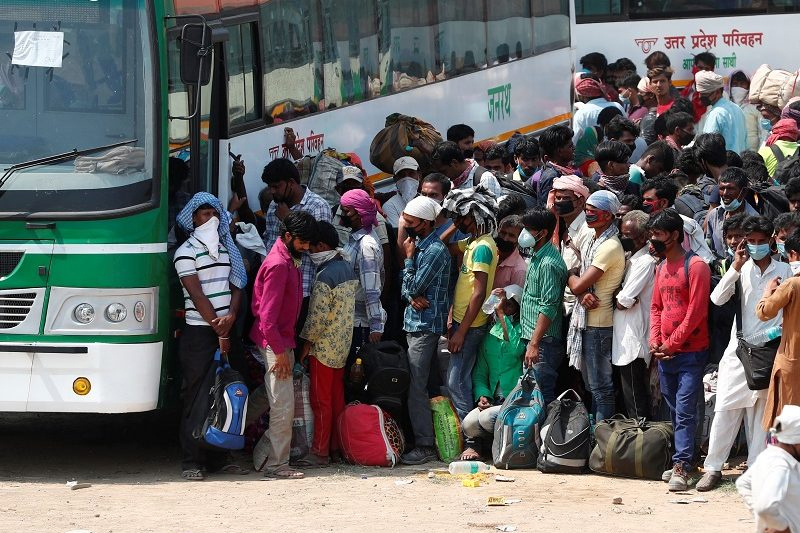

As India gears up for the Lok Sabha Election 2024, a significant segment of the electorate finds itself facing an unexpected barrier:
As India gears up for the Lok Sabha Election 2024, a significant segment of the electorate finds itself facing an unexpected barrier: financial constraints preventing migrant workers from making the journey back to their hometowns to cast their votes. Despite their eagerness to participate in the democratic process, the harsh realities of economic hardship are rendering this fundamental right out of reach for many.
With meagre wages, the prospect of undertaking a costly journey home poses an insurmountable challenge for these migrant workers. For many, the choice between earning a livelihood and participating in the electoral process becomes a stark reality, with economic exigencies dictating their decisions.
Sanjay Jha, a migrant worker from Bihar’s Sitamarhi district working as a security guard in Mumbai, expressed his helplessness at not being able to vote. “Everyone wants to vote. I am really eager to vote; this is my fundamental right. However, due to a financial crunch, I doubt I will do so,” he laments. Spending upwards of Rs. 5,000 on travel costs is an unthinkable luxury for Jha, who earns a modest Rs. 15,000 per month.
Shabbir Sheikh, a labourer from Kishanganj, echoes Jha’s sentiments. “Migrant workers do not have the extra money to travel home to vote. We have to work hard just to provide for our families,” he says, highlighting the difficult trade-off many face.
The stories of Jha and Sheikh are not isolated cases. Thousands of migrant workers from Bihar’s impoverished districts, including Katihar, Purnea, Araria, Kishanganj, Madhepura, Saharsa, and Supaul, confront similar challenges during every election cycle.
Harendar Mandal, a resident of Madhepura working in Tamil Nadu, lamented the lack of government support. “Why is the government not doing anything to facilitate our voting back home? After all, we have equal rights like any other but are deprived of voting due to a lack of money to travel,” he questioned.
As the Lok Sabha elections draw near, there is a growing clamour for authorities to address this issue. Migrant workers like Jai Prakash Yadav and Sanjay Jha advocate for special arrangements, such as free travel coupons, to enable them to exercise their democratic right without financial burden.
The impact of this disenfranchisement is not insignificant. A senior officer from the Bihar State Election Commission acknowledged that the return of migrant workers during the COVID-19 pandemic contributed to an increase in voter turnout during the 2020 Bihar assembly elections, particularly in districts with a higher percentage of returning migrant voters.
As the world’s largest democracy gears up for another crucial election, the voices of these migrant workers serve as a poignant reminder of the challenges that persist in ensuring universal suffrage. Their stories underscore the need for inclusive measures that safeguard the fundamental rights of every citizen, regardless of their economic status or geographic location.
Only when the electoral process is truly accessible to all can India’s democracy claim to be truly representative of its diverse populace. The onus now lies on policymakers and authorities to bridge this gap and ensure that no voter is left behind, paving the way for a more equitable and participatory democratic process.
American working professionals are starting side jobs due to financial instability during these times. According to LinkedIn Workforce Confidence survey…
Just Stop Oil - the British group famous for its protests against climate change - has decided to change tactics…
Under HHS Secretary Robert F. Kennedy Jr. the Department of Health and Human Services starts its change process by firing…
Glove manufacturer YTY has raised alarms over forced-labour practices that could be of a “systemic nature” at one of its…
The climate crisis in Iraq represents not just an environmental emergency, it is also an important humanitarian crisis affecting large…
In a major update, a BBC correspondent has been arrested and deported from Turkey after reporting on the ongoing protests…
This website uses cookies.
Read More